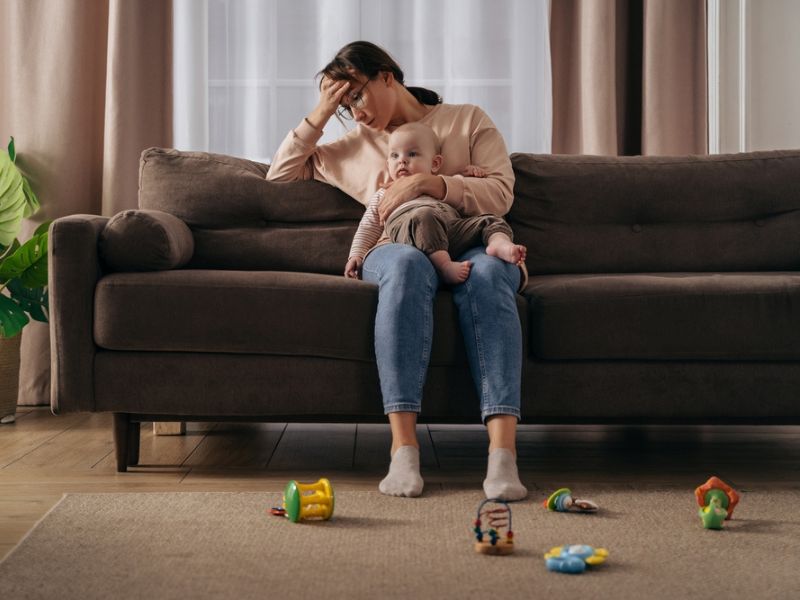There are many challenges a new mother faces when bringing a new baby into the world, especially for a first-time mom. Sleeping, feeding, and a constant need for attention aren’t easy. Despite these challenges, many mothers can persevere and overcome them, even if they feel worn out. However, for some mothers, this isn’t the case.

Image Credit: Shutterstock/Arsenii Palivoda
“While uncommon, some new mothers may experience a condition known as postpartum psychosis. This condition is distinct from the more frequently occurring postpartum depression or “baby blues,” according to Dr. Carla Sandy, an obstetrician-gynecologist. Dr. Sandy notes that women with postpartum psychosis may experience hallucinations, delusions, confusion, paranoia, auditory hallucinations, abnormal behavior, and disorientation.”
Postpartum Psychosis: What Is It Like?
Having postpartum psychosis can be a traumatic and confusing experience for new mothers. Women with postpartum psychosis may also experience depression, irritability, and insomnia. The onset of the condition can be sudden and quickly escalate, making it essential for women experiencing these symptoms to seek medical attention as soon as possible. It’s important to note that postpartum psychosis is a medical emergency and requires immediate treatment.
How To Deal With Postpartum Depression
According to Dr. Carla Sandy, a partner or relative must express their concerns to a new mother if they observe signs that she may be experiencing postpartum psychosis. She emphasizes the importance of acting promptly if warning signs are present so the mother’s medical team can assess and determine the most appropriate course of treatment.

Image Credit: Shutterstock/Ground Picture
Postpartum Psychosis: Is It Treatable?
According to Forray, postpartum psychosis is a manageable condition. She states, “with proper treatment, most individuals with postpartum psychosis make a complete recovery.” Choi notes that in many instances, mothers experiencing postpartum psychosis may need to participate in an inpatient treatment program that provides controlled surroundings and constant supervision.